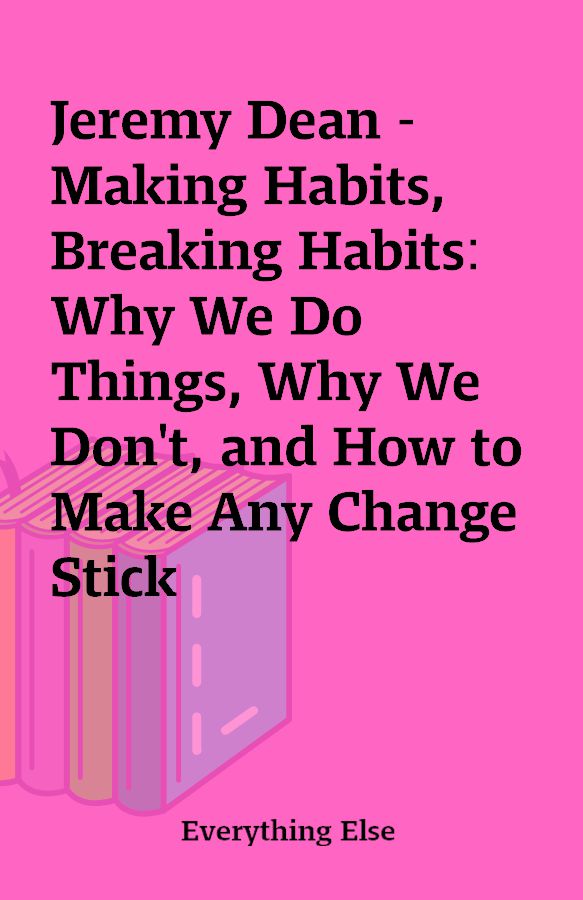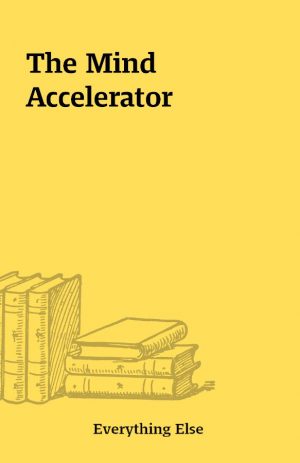Jeremy Dean – Making Habits, Breaking Habits: Why We Do Things, Why We Don’t, and How to Make Any Change Stick
Making Habits, Breaking Habits
[Audiobook – 13 M4A]
Description
About 50% of our everyday lives are habitual. While we’re awake, then, about half the time we are repeating the same actions or thoughts in the same contexts. Automatically. Without thinking. It’s part of the reason change is so hard.It’s clear from this that how habits form, operate and change is a vital component of how we experience life.The vast majority of our established habits are good, like looking both ways before crossing the road or brushing our teeth. But what if you want to ingrain a new habit like learning an instrument, eating more vegetables or cycling to work:How long will it take?Will it get crushed by your existing routines?Who will win in the battle between intentions and established habit?Based on psychological research‘Making Habits, Breaking Habits‘ distils the results of hundreds of studies containing thousands of participants, to give you a blueprint for how to create a new habit and tackle bad ones, whatever they are, and how to make it automatic so that willpower is no longer an issue.The book explores the research on habits most of us have tried to ingrain like healthy eating and exercise.You will learn:Why the performance of habits is curiously emotionless.Why we lose the pleasure from our good habits and how to regain it.How to develop more creative habits.How and why habits are cued up automatically by our environments.Can you really be addicted to Facebook, Twitter or email?Why habits of thought are at the root of depression and other mental problems.They psychology of habits is explained in a straightforward, witty way with no technical jargon.OverviewIn the first part of this book, The Anatomy of Habit, we look at how good and bad habits are formed. The first four chapters examine where habits come from, how they feel to perform, how much of life they take up as well as the roots of our ambivalence towards them. This section answer the question of why we can find ourselves powerless to control our habits.In part two, Everyday Habits, we zoom out to look at the performance of habits in everyday life. With our new understanding of how habits operate we look at how this plays out. It reveals how understanding our habits illuminates both our social lives and our inner lives. Habits aren’t just repetitive actions; they can also be repetitive thoughts. When repetitive negative thoughts get out of hand, we have the basis for depression and other psychological problems. This section also looks at how habits operate when we eat, work, socialize, shop, fly, get medical treatment and go online.Part three, Habit Change, looks at what the psychological research can tell us about how to make new habits and how to break bad old habits. The conclusions are cautious because habit change is difficult, but the science does point to some effective techniques that can help us reach our goals for personal change, with a particular focus on healthy habits like eating and exercise. Then the discussion is broadened out to look first at creativity then happiness. It explores what the science of habit tells us about how to make ourselves happier and more creative.
You must be logged in to post a review.






Reviews
There are no reviews yet.